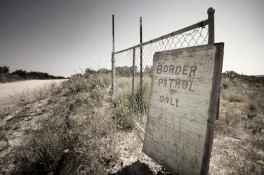
Even if you run your business smoothly, you run the risk of disaster striking at a moment's notice. A customer could walk into your establishment and trip on your floor, a pedestrian could be hit by a delivery truck, or a defective product could cause injury. Public liability insurance gives you the ability to expect the unexpected without it costing your livelihood.
What is Public Liability Insurance?
In Australia, public liability insurance was created for business professionals who interact with members of the public (typically customers). It helps protect against property damage or personal injury a third party may suffer while interacting with a business. If you're sued by the person who received the injury, your business can recover the loss through court reparations.
At the same time, a business may not have to sue a customer if they break their personal property. Often, public liability insurance will cover the cost of what's broken up to a certain percent. Total cost may be reimbursed if the item is inexpensive or easily replaceable.
Keep in mind that public liability insurance will only cover claims made by non-employees. Most insurance companies will create business insurance packages that include workers.
Who Needs Public Liability Insurance?
There are plenty of businesses that could be exposed to a liability claim. These businesses include but aren't limited to allied health care, alarm installers, cleaners, restaurants, gardeners, HVAC contractors, metal fabricators, solar panel installers, beauticians, and forestry contractors.
These businesses would need public liability insurance because they work with clients, suppliers, or customers in a public space. Most of those businesses would also visit areas owned or controlled by others (a customer's home) or have visitors come to their premises. Finally, if you manufacture any products or goods, consider taking out a policy.
What Does Public Liability Insurance Cover?
Although every insurer will cover your business differently, you can expect to see the following:
● First aid expenses the company used to help the injured party
● Injury to others who sustain an injury while they were visiting your business
● Legal costs incurred by settlement or defense of a claim
● Covers others that acted on behalf of your business at the time of injury (delivery drivers)
● Lost or damaged goods which the business owner controls or has custody over
● Lost or damaged property that occurs while performing business services
What Doesn't Public Liability Insurance Cover?
While it's possible that the following is covered by public liability insurance, it's unlikely.
● Aircraft products or aircraft manufacturing products
● Workers compensation or employers responsibility for an injured worker
● Punitive damages awarded to the victim if you lose your case
● Gradual pollution that occurs from running your business
● Liquidated damages from unsold items or damaged property not covered by insurance
● Product recalls unless the recall could have been accounted for
● Liabilities that you would not be liable for despite a contractual obligation
Public Liability vs. Professional Indemnity
Public liability insurance and professional indemnity insurance are used for different businesses.
Professional indemnity insurance helps you protect against losses claimed by a third party due to errors in professional advice or actual negligence that occurred from your recommendations. For example, if a personal trainer advised their clients to eat full-fat meat to achieve optimal health, but they later developed heart disease, professional indemnity insurance would protect them.
Financial advisors, lawyers, accountants, or personal trainers would use professional indemnity.
Public liability insurance is specifically designed to protect a business if a member of the public is injured or sustains property damage to the building itself or its property.
Some industries could benefit from both protections. For example, a chiropractor could give poor advice to their clients on how to treat their back pain immediately before the trip and become injured by a marked wet spot on the floor.
© 2017 Jobs & Hire All rights reserved. Do not reproduce without permission.
* This is a contributed article and this content does not necessarily represent the views of jobsnhire.com




